Alternative for Germany: All you need to know about the far-right nationalist party which has won seats in Parliament for first time
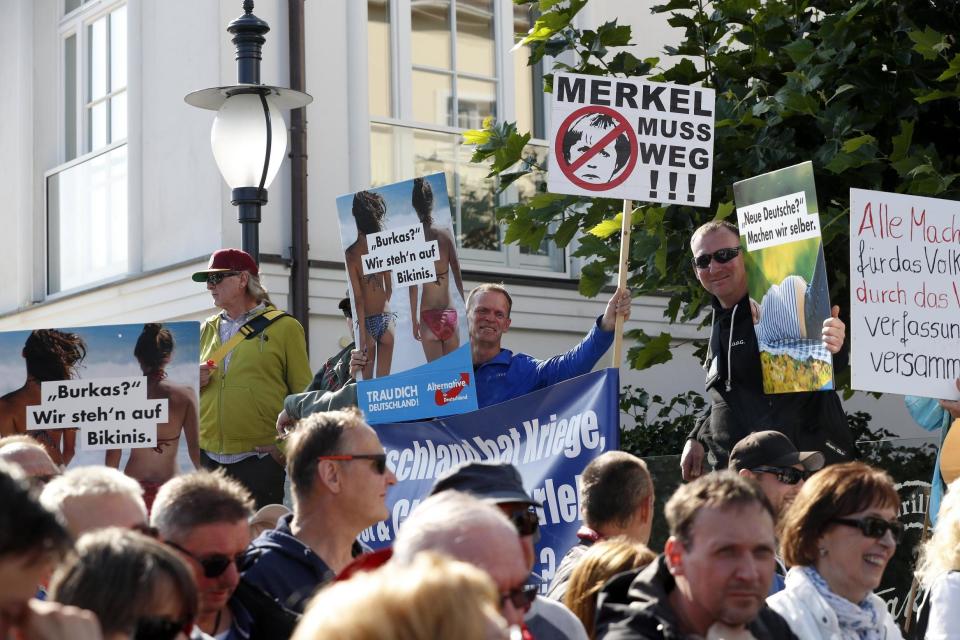
The far-right Alternative for Germany (AfD) party sent shock waves through the country's political mainstream as it gained seats in the Bundestag for the first time.
Despite being re-elected, Chancellor Angela Merkel’s political position was weakened and the AfD saw a surge in support to make it the country's first significant hard-right party since the Nazis.
It received 12.6 per cent of votes in Sunday's election to become the third-largest caucus in Parliament behind Mrs Merkel's bloc and the Social Democrats.
The once economic-focused party has drifted further towards the hard-right since it was launched four years ago, and on Sunday won 94 seats in the German Bundestag.
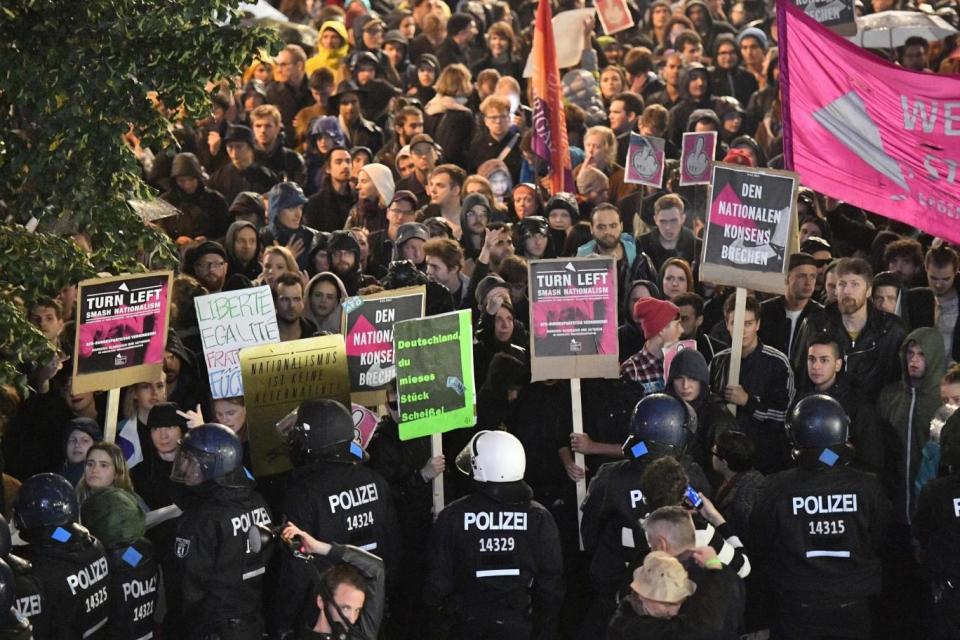
A party built on economic principles
In 2013, economist and former State Secretary Bernd Lucke and former journalist Konrad Adam launched political group Wahlalternative 2013 (Electoral Alternative 2013).
AfD figures' most controversial comments
Former co-chair Frauke Petry said German police should be armed to shoot refugees who are entering the country illegally to “prevent illegal border crossings”.
The party’s head in Thuringia, Björn Höcke, said Germany should stop feeling shame for its Nazi past and descried the Holocaust memorial in Berlin as a “memorial of shame”.
Member of Parliament Andre Wendt sparked outrage after inquiring to what extent the state covers the cost of sterilising unaccompanied refugee minors.
Co-chairman Alexander Gauland said the German footballer Jerome Boateng – who is half Ghanaian – is a talented sportsman but said most people would not want "someone like Boateng as a neighbour."
Gauland also said Germany should close its borders and not “be blackmailed by children’s eyes” in response to an infamous image of a drowned child refugee.
The group was founded on the principle that, at the height of the eurozone crisis, there was a feeling of discontent over Germany bailing out southern European countries.
The group’s initial manifesto opposed German federal policies and stated the eurozone was "unsuitable" as a currency area and was leaving southern European states "sinking into poverty".
The manifesto was endorsed by respected journalists, academics, business leaders and economists.
Members of the group decided to seek election in 2013 and formed the Alternative for Germany party, which was backed by the same groups.
Infighting and leadership woes
In the 2013 federal election, the party narrowly failed to pass the five per cent threshold to enter parliament but the following year won seven seats in the European Parliament.
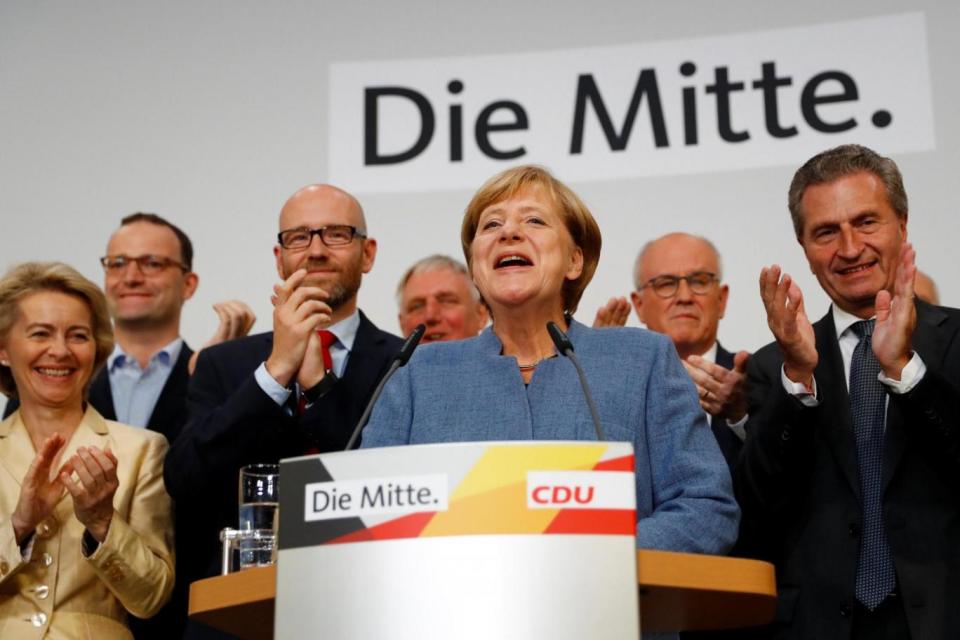
The votes were won on a Eurosceptic platform, but members of the party were careful not to present themselves as too anti-European.
In fact, there was a debate over whether the slogan of “Courage to Stand up for Germany” was too strong and, as a result, it was later changed to MUT ZU D*EU*TSCHLAND with the EU encircled with the stars of the European flag.
At one time, AfD officials said they had discussed alliances with UKIP – a collaboration opposed by Mr Lucke and the federal board - but this was later ruled out.
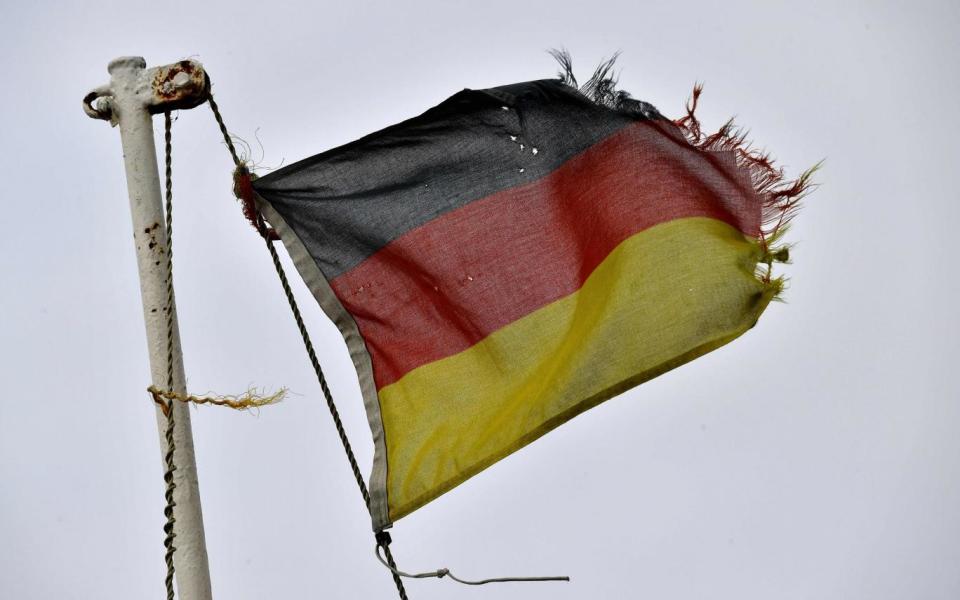
In 2015 Frauke Petry was elected principal speaker and her leadership saw the party shift more to the right and focus on a hard-line anti-immigration policy.
Mr Lucke later announced he was resigning from the party and blamed the rise of xenophobic and pro-Russian sentiments.
At a party congress in 2016, the AfD adopted a policy platform based upon opposition to Islam, calling for the ban of Islamic symbols and dress and using the slogan "Islam is not a part of Germany".

Ms Petry was accused of turning the AfD into an anti-Islam party and five MEPs left the group in protest.
The party’s collaboration with the far-right Freedom Party of Austria then saw it expelled from the European Conservatives and Reformists group in the European Parliament in 2016.
But, with rising tensions over Angela Merkel's decision to open Germany's gates to hundreds of thousands of refugees, the AfD continued to grow in popularity.
In recent months, Ms Petry became embroiled in a spat with other senior figures after urging her party to exclude members who express extremist views with the aim of attracting moderate voters.
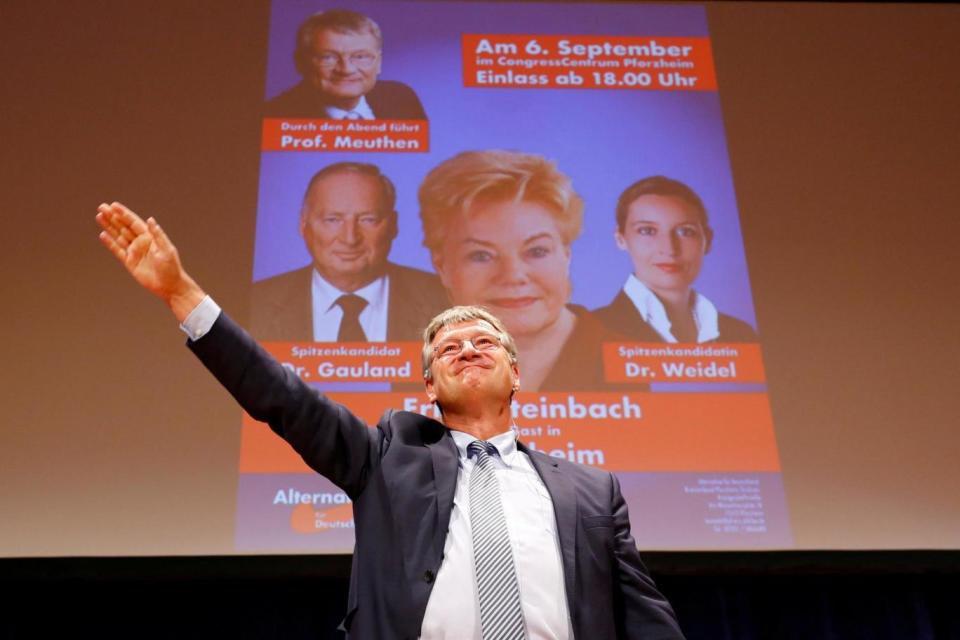
Ms Petry shocked the AfD as she announced her resignation from the party on Monday, just a day after it made stunning election gains, thanks to disagreements with members from its more radical wing.
Far-right?
AfD's opponents have described the party as a far-right or even extreme-right, citing the xenophobic views expressed by some of its members.
But political scientists caution that while there are extremists in the party's ranks, its ideas are closer to those once held by the conservative wing of Ms Merkel's party than to the far-right fringe of German politics.
However, the party and party leaders have often been affiliated with extreme anti-Islam groups and anti-Semitic beliefs.
Earlier this year, Mr Höcke called for a "U-turn" in the way Germany remembers its Nazi past.
In a speech referring to the Holocaust memorial in Berlin, he stated that "we Germans are the only people in the world who have planted a memorial of shame in the heart of their capital" and suggested Germans "need to make a 180 degree change in their politics of commemoration."
And party co-leader Alexander Gauland prompted controversy again weeks before the election by saying that "we have the right to be proud of the achievements of Germans soldiers in two world wars".
The AfD has also been linked to the citizens’ movement Pegida - the Patriotic Europeans Against the Islamisation of the West – due to the overlap of ideologies and politics.
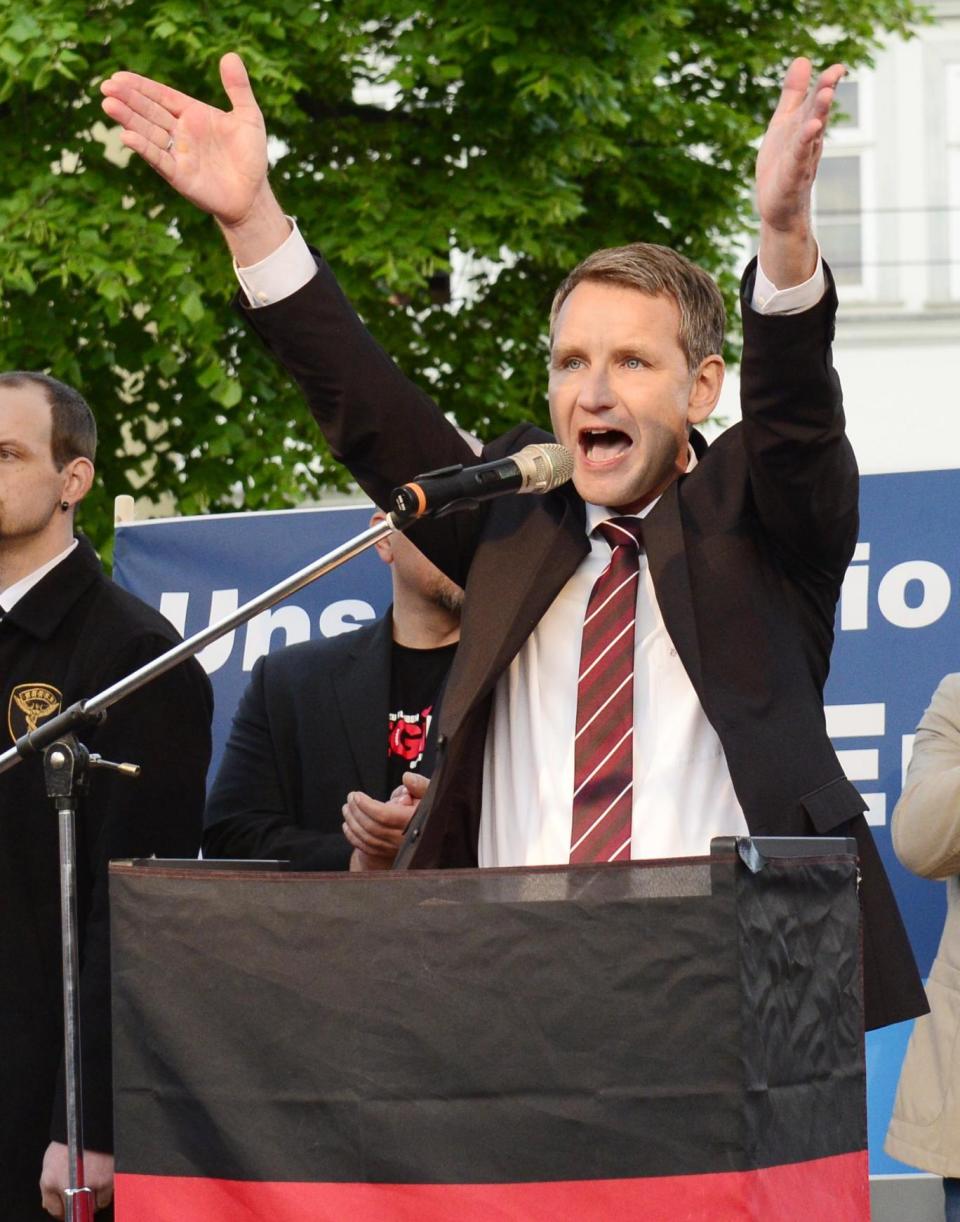
Policies
Nationalism:
The party initially centred on an anti-Eurozone stance, focusing on financial policies. But this has since developed into more of a nationalist agenda supporting calls for Germany to hold a referendum on EU sovereignty similar to Britain.
Senior members of the party have also expressed a desire to reclaim Germany’s national pride – specifically in relation to shame regarding the country’s Nazi history.
Höcke often speaks of the "Fatherland" and has said that Germany should make a "180 degree" turn with regard to its sense of national pride. The party has also suggested that the country’s identity as under threat immigrants and refugees.
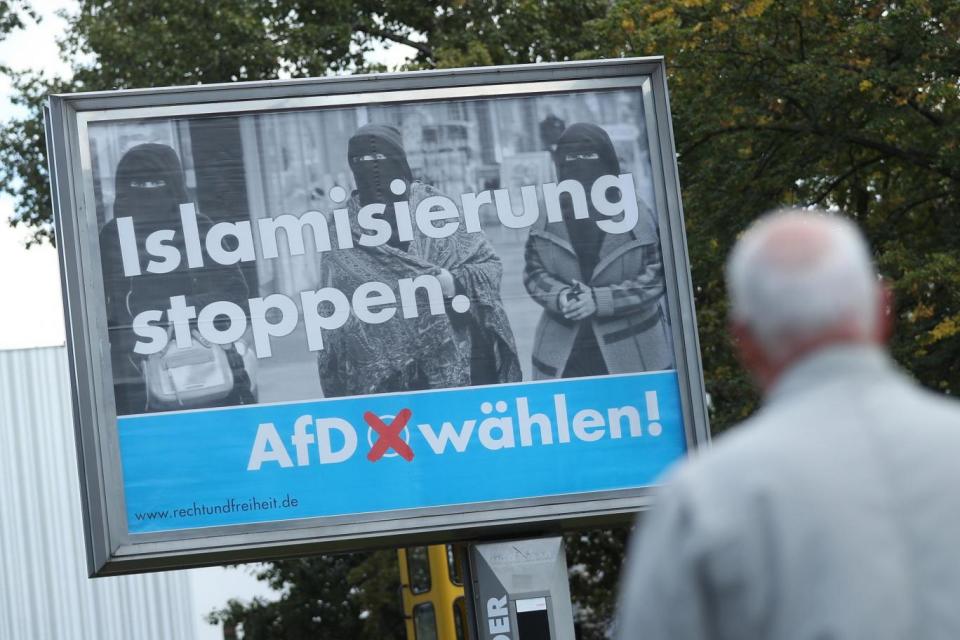
The traditional family:
The AfD is anti-abortion, against same-sex marriage and adoption and seeks to promote the traditional family unit.
It also favours traditional roles for women. Wolfgang Gedeon, an elected AfD representative, said feminism, “sexualism,” and “migrationism” are examples of the “green communism” he opposes.
Russia:
It has taken a very pro-Russia stance, calling for Western sanctions against Moscow over its involvement in the Ukraine conflict to be dropped.
Ms Petry travelled to Russia earlier this year for a secretive meeting with members of Russian president Vladimir Putin's party and AfD has courted Russian-speaking German voters with considerable success.
Environment:
The party has a platform of climate change denial ad wants to restrict "uncontrolled expansion of wind energy".
Conscription:
AfD wants a reinstatement of conscription, starting for men at the age of 18.

 Yahoo News
Yahoo News 